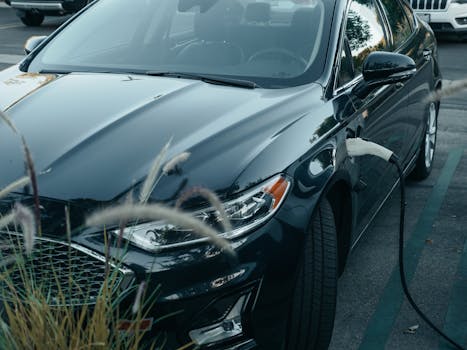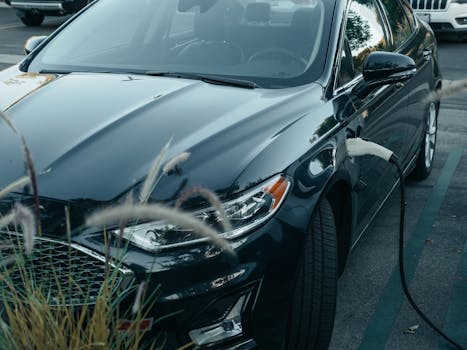
Car insurance plays a crucial role in protecting us from unexpected expenses and providing financial security on the road. As responsible drivers, we understand the importance of having an insurance policy that covers potential damages and accidents. But what about those routine maintenance issues, like battery replacement? Does car insurance cover battery replacement? In this comprehensive guide, we’ll explore everything you need to know about car insurance coverage for battery replacement.
Understanding Car Insurance Coverage
Before we delve into the specifics of battery replacement coverage, let’s take a moment to understand the different types of car insurance coverage available. Car insurance policies typically consist of several components, each offering a different level of protection.
-
Liability Coverage: This is the most basic type of car insurance and is required in most states. Liability coverage protects you financially if you cause an accident and damage someone else’s property or injure them.
-
Collision Coverage: Collision coverage pays for the repairs or replacement of your vehicle if it is damaged in an accident, regardless of who is at fault.
-
Comprehensive Coverage: Comprehensive coverage provides protection against non-collision incidents, such as theft, vandalism, weather-related damage, and yes, even battery replacement.
Overview of Battery Replacement

Let’s briefly go over the common reasons for car battery replacement and the associated costs. A car battery can fail for various reasons, including:
-
Age: As a battery ages, it becomes more prone to failure. Most batteries last between 3 to 5 years, but factors like weather conditions, usage patterns, and maintenance can affect their lifespan.
-
Improper Maintenance: Failure to perform regular maintenance tasks, such as cleaning the terminals, can lead to battery deterioration and eventual failure.
-
Extreme Temperatures: Extreme cold or hot weather conditions can cause a battery to struggle and ultimately fail.
When it comes to costs, battery replacement can vary depending on various factors, such as the type of vehicle, the brand of the battery, and labor charges. On average, the cost of a new car battery ranges from $150 to $300.
Does Car Insurance Cover Battery Replacement?

Now, let’s address the burning question: does car insurance cover battery replacement? The answer is not as straightforward as we might hope. Standard car insurance policies usually do not cover the cost of battery replacement unless the battery failure is a direct result of an accident. Car insurance primarily focuses on damages to your vehicle and liability coverage for third-party claims.
However, there is a silver lining. If you have comprehensive car insurance, there is a chance that battery replacement may be covered under certain circumstances. Comprehensive coverage protects against non-collision incidents, and some policies may extend coverage to include battery replacement.
Factors to Consider
While comprehensive car insurance might offer coverage for battery replacement, there are a few factors to consider:
-
Policy Specifics: Each insurance policy is unique, and coverage details can vary. It’s crucial to review your policy thoroughly or contact your insurance provider to determine if battery replacement is covered.
-
Deductible: If your policy does cover battery replacement, keep in mind that you may still be responsible for paying a deductible before the insurance kicks in.
-
Coverage Limits: Even if your policy includes coverage for battery replacement, there may be limits on the amount the insurance company will pay. Make sure to check the coverage limits outlined in your policy.
-
Claims History: Making frequent claims can impact your future premiums, so it’s essential to weigh the potential cost of battery replacement against the long-term impact on your insurance rates.
Alternatives to Car Insurance Coverage
If car insurance doesn’t cover battery replacement or you want to explore other options, there are alternative ways to address the cost of battery replacement:
-
Roadside Assistance Programs: Many insurance providers offer roadside assistance programs as an add-on to their car insurance policies. These programs typically include services like battery jump-starts and towing, which can help alleviate the costs of battery replacement.
-
Extended Warranties: Some vehicle manufacturers offer extended warranties that cover specific parts, including batteries. These warranties can provide peace of mind and financial protection if your battery fails within the warranty period.
Tips for Dealing with Battery Replacement
While unexpected battery failure can be frustrating, there are steps you can take to minimize the chances of it happening and deal with it effectively if it does occur:
-
Regular Maintenance: Follow the manufacturer’s guidelines for battery maintenance, such as cleaning the terminals and ensuring proper electrical connections. Regular maintenance can prolong the life of your battery and reduce the risk of sudden failure.
-
Battery Testing: If you notice any signs of a weakening battery, such as slow cranking or a check engine light, have your battery tested by a professional. Identifying a failing battery early on can save you from unexpected breakdowns.
-
Preparedness: Keep a set of jumper cables in your vehicle and learn how to jump-start your car safely. This knowledge can come in handy in case of a dead battery situation.
-
Emergency Kits: Consider carrying a roadside emergency kit that includes essential tools like flashlights, a tire gauge, and jumper cables. These tools can be invaluable in a battery-related emergency.
FAQs
1. Does car insurance cover battery failure unrelated to an accident?
Standard car insurance policies typically do not cover battery failure unless it is a direct result of an accident. However, comprehensive car insurance might offer coverage under certain circumstances.
2. Will my premium increase if I make a battery replacement claim?
Claims for battery replacement may not directly impact your premium. However, making frequent claims can affect your insurance rates in the long run.
3. Is jump-starting a car covered by car insurance?
Jump-starting a car is not typically covered by car insurance as it is considered routine maintenance. However, roadside assistance programs often include jump-start services.
4. Can I upgrade my insurance policy to include battery replacement coverage?
It may be possible to upgrade your policy to include battery replacement coverage. Contact your insurance provider to explore your options.
5. What steps should I take if my battery dies while driving?
If your battery dies while driving, try to safely maneuver your vehicle to the side of the road. Turn on your hazard lights and call for roadside assistance or a tow truck.
6. Are there any warranties that cover car battery replacement?
Some vehicle manufacturers offer extended warranties that cover specific parts, including batteries. These warranties can provide financial protection if your battery fails within the warranty period.
7. Does comprehensive car insurance cover battery replacement for all types of vehicles?
Comprehensive car insurance coverage can vary depending on the policy. Review your specific policy or contact your insurance provider to determine if battery replacement is covered for your type of vehicle.
8. How can regular car maintenance help avoid frequent battery replacements?
Regular car maintenance, such as cleaning the terminals and ensuring proper electrical connections, can prolong the life of your battery and reduce the risk of sudden failure.
9. What should I do if my car battery dies in a remote location without coverage?
If your car battery dies in a remote location without coverage, your best option is to contact a roadside assistance service or a tow truck to assist you.
Final Take
In conclusion, standard car insurance policies usually do not cover the cost of battery replacement unless it is a direct result of an accident. However, comprehensive car insurance may offer coverage for battery replacement under certain circumstances. It is essential to thoroughly review your policy or contact your insurance provider to understand the coverage specifics.
If car insurance coverage for battery replacement is not available or you prefer alternative options, consider roadside assistance programs or extended warranties offered by vehicle manufacturers. These alternatives can help cover the costs associated with battery replacement.
Remember, regular maintenance and proactive steps can minimize the chances of battery failure. By following the manufacturer’s guidelines for battery maintenance and being prepared with the necessary tools, you can mitigate the inconvenience and expense of unexpected battery replacement.
Understanding your car insurance policy and exploring alternative options will ensure that you are prepared for battery replacement scenarios and minimize any unexpected expenses on the road. Stay informed, be proactive, and drive with confidence knowing you have the coverage you need.



